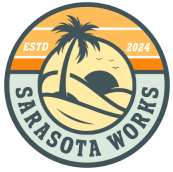Introduction
Landing a job interview is a significant milestone in any job seeker’s journey, especially in the vibrant job market of Sarasota. However, what you do after the interview can be just as crucial as your performance during it. Post-interview etiquette can leave a lasting impression on potential employers and set you apart from other candidates. This guide provides key steps to navigate the post-interview process with professionalism and poise.
The Interview Wrap-Up
Ending on a Positive Note
As your interview draws to a close, it’s important to wrap up the conversation positively. Express gratitude for the opportunity and emphasize your interest in the role. A simple statement like, “Thank you for this opportunity. I’m very excited about the possibility of joining your team,” can leave a lasting impression.
Asking Insightful Questions
Don’t miss the chance to ask thoughtful questions about the company and the role. Inquiring about the company’s culture, growth opportunities, and team dynamics shows that you’re genuinely interested and have done your homework. Consider questions like:
- “Can you tell me more about the team I would be working with?”
- “What are the biggest challenges facing the department right now?”
- “How do you measure success for this role?”
Follow-Up Email
Crafting a Professional Thank-You Email
Sending a thank-you email after your interview is not just polite; it’s an essential part of post-interview etiquette. Here’s how to craft one:
- Subject Line: Keep it clear and concise, e.g., “Thank You – [Your Name].”
- Opening: Express your gratitude for the opportunity to interview.
- Body: Mention specific points discussed during the interview that reinforced your interest in the position.
- Closing: Reiterate your enthusiasm for the role and your appreciation for their time.
Example:
“`plaintext
Subject: Thank You – John Doe
Dear [Interviewer’s Name],
Thank you for the opportunity to interview for the [Job Title] position today. I enjoyed learning more about [Company Name] and how my background in [relevant experience] aligns with the team’s goals.
I am particularly excited about [specific aspect discussed], and I am eager to bring my skills in [relevant skill] to contribute to the success of your team.
Thank you again for your time and consideration. I look forward to the possibility of working together.
Best regards,
John Doe
“`
Timing
Send your thank-you email within 24 hours of the interview. This demonstrates promptness and respect for the interviewer’s time.
Post-Interview Call
When and How to Follow-Up
If you haven’t received a response after sending your thank-you email, a follow-up call can be appropriate. Wait about one to two weeks before making the call. Be polite and concise, expressing gratitude for the interview and reiterating your interest in the role.
Example:
“Hi [Interviewer’s Name], this is [Your Name]. I wanted to follow up regarding the [Job Title] position. I’m still very interested and wanted to express my gratitude once again for the opportunity. Thank you for your time.”
Handling Waiting Periods
Managing Anxiety
Waiting for a response can be nerve-wracking. Here are some strategies to manage anxiety:
- Stay Busy: Continue applying for other positions and attending interviews. This keeps your momentum going and reduces the focus on waiting.
- Exercise: Physical activity can help reduce stress.
- Mindfulness Practices: Techniques such as meditation and deep breathing can help maintain calm.
The Silent Period
If You Don’t Hear Back
If the employer doesn’t respond within the expected timeframe, it’s important to handle it gracefully. Send a polite follow-up email after a reasonable period, usually one to two weeks after your thank-you email.
Example:
“`plaintext
Subject: Follow-Up on [Job Title] Interview
Dear [Interviewer’s Name],
I hope this message finds you well. I wanted to follow up regarding the [Job Title] position. I remain very interested in the opportunity to join [Company Name] and contribute to your team.
Thank you again for the interview on [date]. I look forward to hearing from you soon.
Best regards,
[Your Name]
“`
Following Up Without Appearing Desperate
Keep your follow-ups professional and to the point. Avoid multiple follow-ups in a short span, as this can come off as desperate.
Rejection and Acceptance
Responding to Outcomes
Positive Outcomes
If you receive a job offer, respond promptly. Express your appreciation and take the time to review the offer carefully. If you need to negotiate, do so respectfully and professionally.
Negative Outcomes
Rejection can be disappointing, but it’s also an opportunity for growth. Respond with appreciation for their time and ask for feedback if appropriate. This can provide valuable insights for future interviews.
Example:
“`plaintext
Dear [Interviewer’s Name],
Thank you for informing me about your decision regarding the [Job Title] position. While I am disappointed, I appreciate the opportunity to have interviewed with [Company Name].
If possible, I would be grateful for any feedback you could provide to help me improve for future opportunities.
Thank you again for your time and consideration.
Best regards,
[Your Name]
“`
Learning from Experience
Regardless of the outcome, each interview is a learning experience. Reflect on what went well and areas for improvement. This will make you a stronger candidate for future opportunities.
Conclusion
Post-interview etiquette is a critical aspect of any job search. From sending a timely thank-you email to managing the waiting period and responding to outcomes with grace, each step plays a role in leaving a positive impression. Remember, every interaction with a potential employer is an opportunity to showcase your professionalism and enthusiasm. Stay proactive and positive, and you’ll be well on your way to landing your dream job in Sarasota.
If you found these tips helpful, please share this post with your network and engage with us in the comments below. We’d love to hear your thoughts and experiences!


